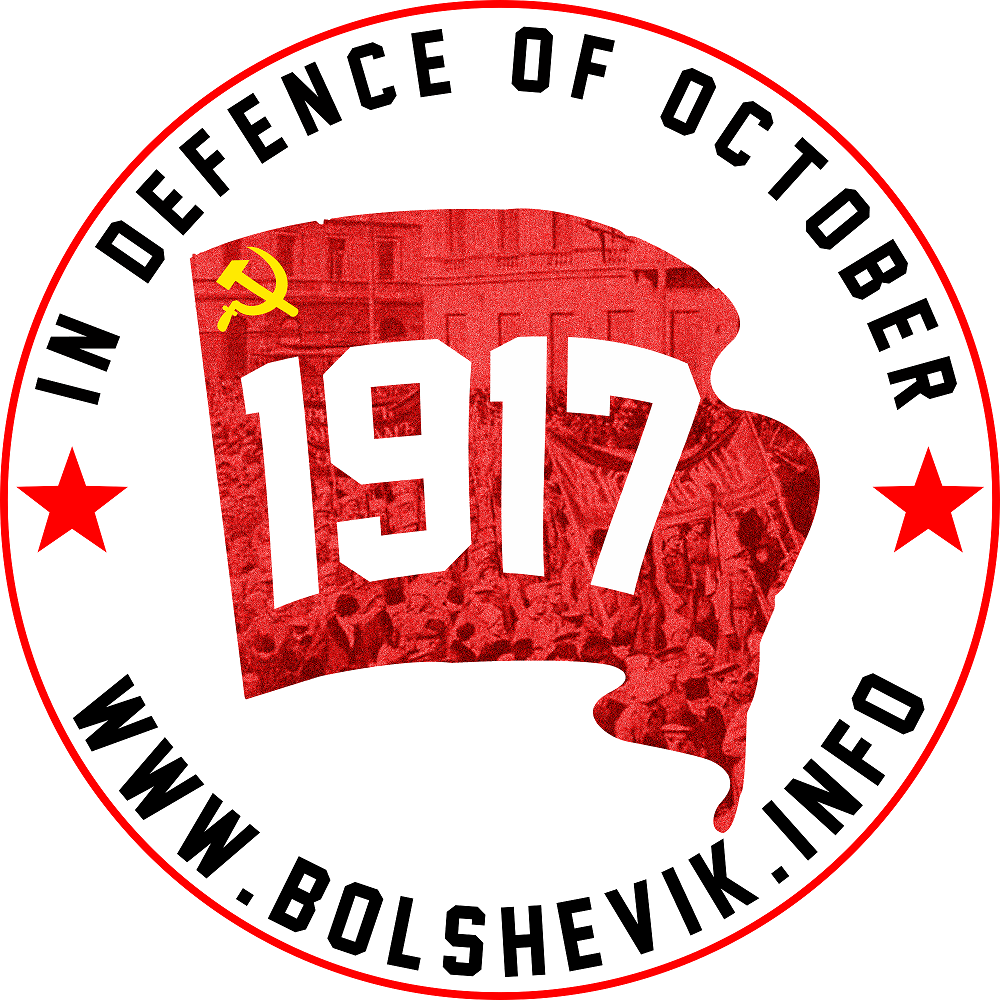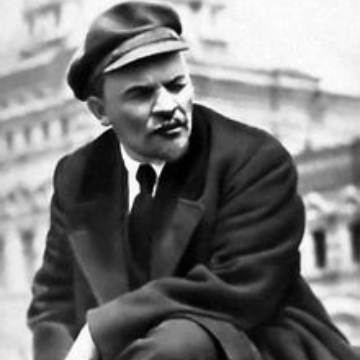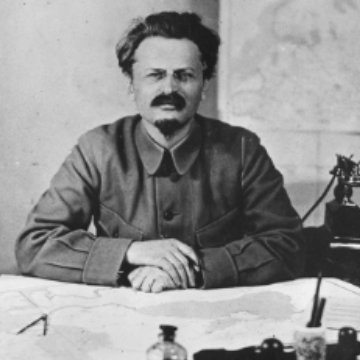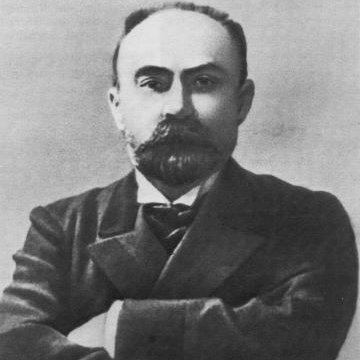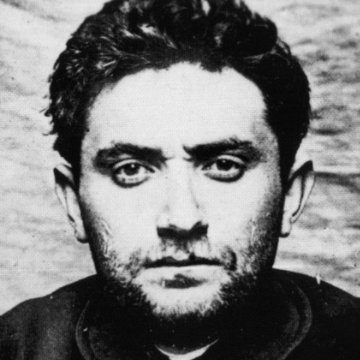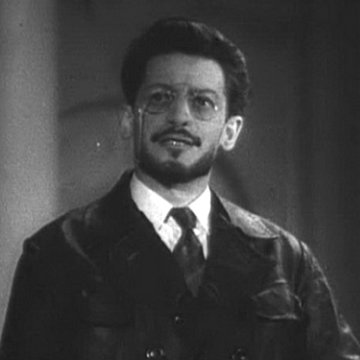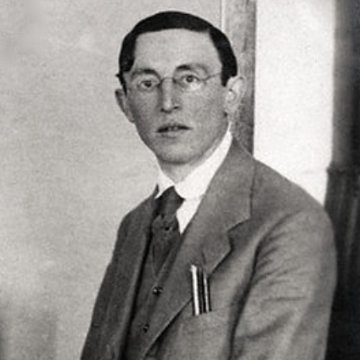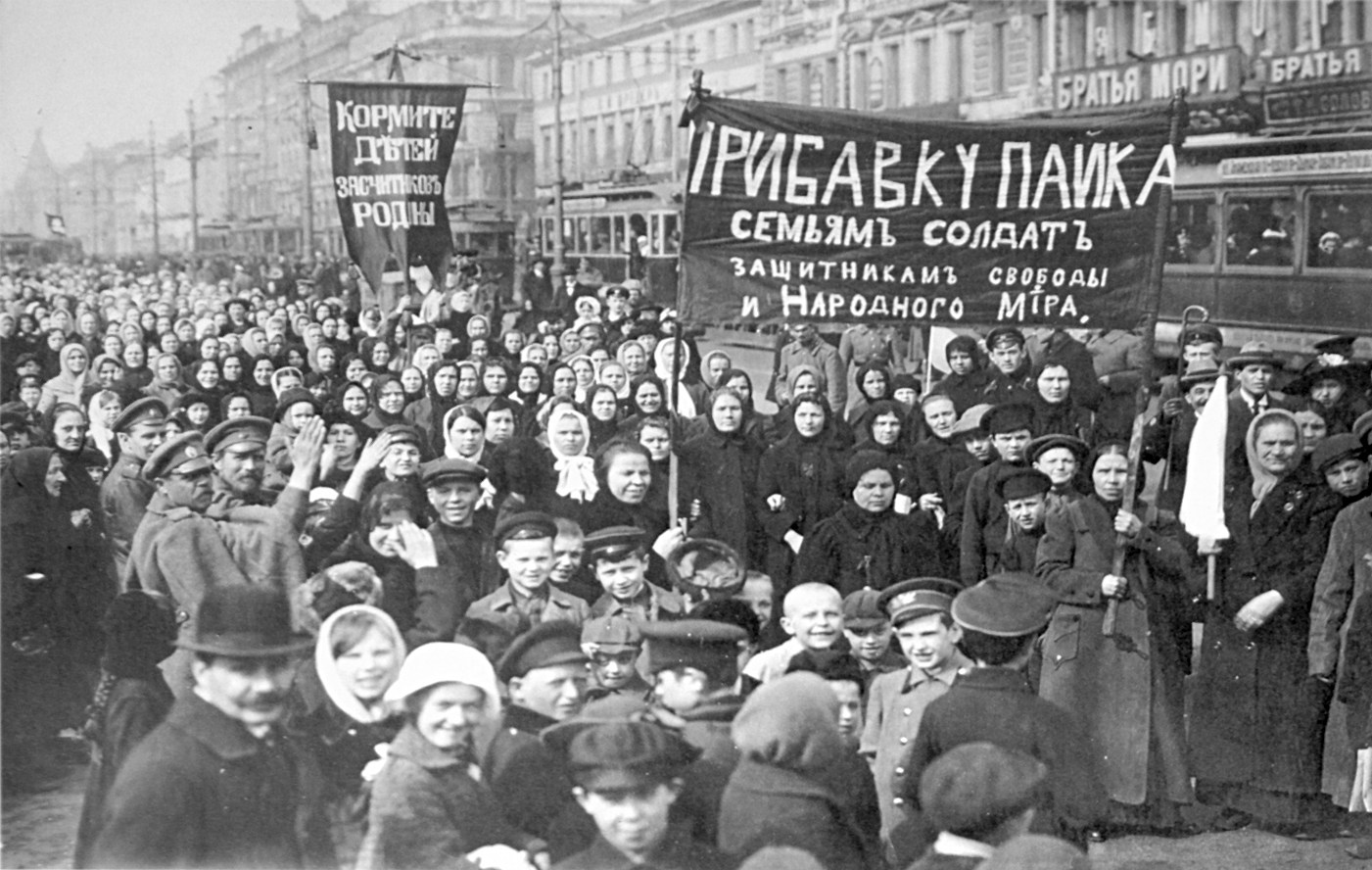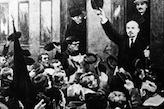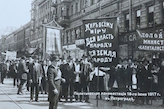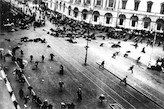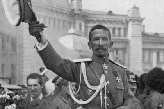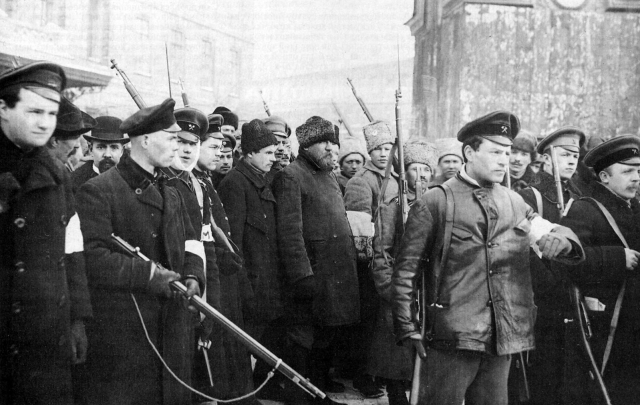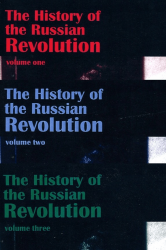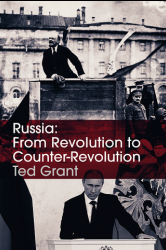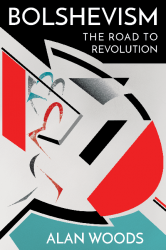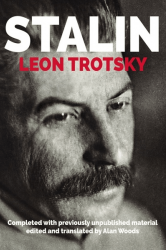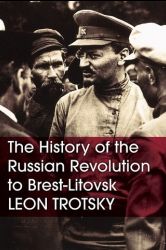21) Speech in Favour of the Resolution on the Current Situation May 12 (April 29)
In the resolution on the current situation it would be wrong to speak only of Russian conditions. The war has bound us together so inseparably that it would be a great mistake on our part to ignore the sum total of international relations.
The main question dealt with in the resolution is this: what tasks will confront the Russian proletariat in the event of the world movement raising the issue of a social revolution?
“The objective conditions for a socialist revolution, which undoubtedly existed even before the war in the more developed and advanced countries, have been ripening with tremendous rapidity as a result of the war. Small and middle enterprises are being squeezed out and ruined at a faster rate than ever. The concentration and internationalisation of capital are making gigantic strides; monopoly capitalism is developing into state monopoly capitalism. In a number of countries regulation of production and distribution by society is being introduced by force of circumstances. Some countries are introducing universal labour conscription.”
Before the war we had the monopoly of trusts and syndicates; since the war we have had a state monopoly. Universal labour conscription is something new, something that constitutes part of a socialist whole—this is often over looked by those who fear to examine the concrete situation.
The first part of the resolution concentrates on an analysis of the conditions of capitalist economy throughout the world. It is noteworthy that twenty-seven years ago Engels pointed out that to describe capitalism as something that “is distinguished by its planlessness” and to overlook the role played by the trusts was unsatisfactory. Engels remarked that “when we come to the trust, then planlessness disappears”, though there is capitalism. This remark is all the more pertinent today, when we have a military state, when we have state monopoly capitalism. Planning does not make the worker less of a slave, but it enables the capitalist to make his profits “according to plan”. Capitalism is now evolving directly into its higher, regulated, form.
The second part of the resolution needs no explanations.
The third part requires more detailed comment. (Reads the resolution.)
“Operating as it does in one of the most backward countries of Europe amidst a vast population of small peasants, the proletariat of Russia cannot aim at immediately putting into effect socialist changes.
“But it would be a grave error, and in effect even a complete desertion to the bourgeoisie, to infer from this that the working class must support the bourgeoisie, or that it must keep its activities within limits acceptable to the petty bourgeoisie, or that the proletariat must renounce its leading role in the matter of explaining to the people the urgency of taking a number of practical steps towards socialism for which the time is now ripe.”
From the first premise it is customary to make the conclusion that “Russia is a backward country, a peasant, petty-bourgeois country, therefore there can be no question of a social revolution”. People forget, however, that the war has placed us in extraordinary circumstances, and that side by side with the petty bourgeoisie we have Big Capital. But what are the Soviets of Workers’ and Soldiers’ Deputies to do when they assume power? Should they go over to the bourgeoisie? Our answer is—the working class will continue its class struggle.
What is possible and what is necessary under the power of the Soviets?
First of all, the nationalisation of the land. Nationalisation of the land is a bourgeois measure, it does not exclude capitalism, nor does capitalism exclude it, but the blow it will deal to private property will be a heavy one. Further (reads on):
“the establishment of state control over all banks, and their amalgamation into a single central bank; also control over the insurance agencies and big capitalist syndicates (for example, the Sugar Syndicate, the Coal Syndicate, the Metal Syndicate, etc.), and the gradual introduction of a more just progressive tax on incomes and properties. Economically, these measures are timely; technically, they can be carried out immediately; politically they are likely to receive the support of the overwhelming majority of the peasants, who have everything to gain by these reforms.”
This point evoked discussion. I already had occasion to speak of this in Pravda in connection with Plekhanov’s articles. “When they talk about socialism being impossible,” I wrote, “they try to speak of the latter in a way most advantageous to themselves, they represent it vaguely, indefinitely, as some sort of a jump.” Kautsky himself wrote: “No socialist speaks of the abolition of private property in the case of the peasants.” But does that mean that existing large-scale capital must make it unnecessary for the Soviets of Workers’ and Soldiers’ Deputies to control production, to control the sugar and other syndicates? This measure is not socialism—it is a transitional measure, but the carrying out of such measures together with the existence of the Soviets will bring about a situation in which Russia will have one foot in socialism—we say one foot because the peasant majority controls the other part of the country’s economy. It cannot be denied that economically we are ripe for a change. To effect that change politically, we must have a majority, and the majority are peasants who are naturally interested in such changes. Whether they will prove sufficiently organised is another matter; we cannot speak for them.
An old and often repeated objection to socialism is that socialism means “barracks for the masses” and “mass bureaucracy”. We must now put the issue of socialism differently; we must raise it from the level of the abstract to the level of the concrete, namely, the nationalisation of the land, control over the syndicates, etc. (reads the resolution).
“All these and other similar measures can and should be not only discussed and prepared for enforcement on a national scale in the event of all power passing to the proletarians and semi-proletarians, but also implemented by the local revolutionary organs of power of the whole people when the opportunity arises.
“Great care and discretion should be exercised in carrying out the above measures; a solid majority of the population must be won over and this majority must be clearly convinced of the country’s practical preparedness for any particular measure. This is the direction in which the class-conscious vanguard of the workers must focus its attention and efforts, because it is the bounden duty of these workers to help the peasants find a way out of the present debacle.”
These last words are the crux of the whole resolution; we put the issue of socialism not as a jump, but as a practical way out of the present debacle.
“This is a bourgeois revolution, it is therefore useless to speak of socialism,” say our opponents. But we say just the opposite: “Since the bourgeoisie cannot find a way out of the present situation, the revolution is bound to go on.” We must not confine ourselves to democratic phrases; we must make the situation clear to the masses, and indicate a number of practical measures to them, namely, they must take over the syndicates—control them through the Soviets, etc. When all such measures are carried out, Russia will be standing with one foot in socialism. Our economic programme must show a way out of the debacle—this is what should guide our actions.
| First published in 1925 in the book The Petrograd City and the All-Russia Conferences of the R.S.D.L.P.(B), April 1917 | Published according to the manuscript copy of the Minutes |
22) Resolution on the Current Situation
The world war, brought about by the struggle of world trusts and banking capital for domination over the world market, has already led to the mass destruction of material values, to exhaustion of productive forces, and to such a growth in the war industry that it is impossible to produce even the absolutely necessary minimum of consumer goods and means of production.
The present war, therefore, has brought humanity to an impasse and placed it on the brink of ruin.
The objective conditions for a socialist revolution, which undoubtedly existed even before the war in the more developed and advanced countries, have been ripening with tremendous rapidity as a result of the war. Small and middle enterprises are being squeezed out and ruined at a faster rate than ever. The concentration and internationalisation of capital are making gigantic strides; monopoly capitalism is developing into state monopoly capitalism. In a number of countries regulation of production and distribution by society is being introduced by force of circumstances. Some countries are introducing universal labour conscription.
Under private ownership of the means of production, all these steps towards greater monopolisation and control of production by the state are inevitably accompanied by intensified exploitation of the working people, by an increase in oppression; it becomes more difficult to resist the exploiters, and reaction and military despotism grow. at the same time these steps inevitably lead to a tremendous growth in the profits of the big capitalists at the expense of all other sections of the population. The working people for decades to come are forced to pay tribute to the capitalists in the form of interest payments on war loans running into thousands of millions. But with private ownership of the means of production abolished and state power passing completely to the proletariat, these very conditions are a pledge of success for society’s transformation that will do away with the exploitation of man by man and ensure the well-being of everyone.
* *
*On the other hand, the course of events is clearly confirming the forecast of the socialists of the whole world who, precisely in connection with the imperialist war, then impending and now raging unanimously declared in the 1912 Basle Manifesto that a proletarian revolution was inevitable.
The Russian revolution is only the first stage of the first of the proletarian revolutions which are the inevitable result of war.
In all countries a spirit of rebellion against the capitalist class is growing among the masses, and the proletariat is becoming aware that only the transfer of power to the proletariat and the abolition of private ownership of the means of production can save humanity from ruin.
In all countries, especially in the most advanced, Britain and Germany, hundreds of socialists who have not gone over to the side of “their own” national bourgeoisie have been thrown into prison by the capitalist governments. By this action the latter have clearly demonstrated their fear of the mounting proletarian revolution. In Germany the impending revolution is apparent both in the mass strikes, which have assumed particularly large proportions in recent weeks, and in the growth of fraternisation between the German and Russian soldiers at the front.
Fraternal trust and unity are gradually being restored among the workers of different countries, the very workers who are now killing each other in the interests of the capitalists. This, in turn, will create conditions for united revolutionary action by the workers of different countries. Only such action can guarantee the most systematic development and the most likely success of the world socialist revolution.
* *
*Operating as it does in one of the most backward countries of Europe amidst a vast population of small peasants, the proletariat of Russia cannot aim at immediately putting into effect socialist changes.
But it would be a grave error, and in effect even a complete desertion to the bourgeoisie, to infer from this that the working class must support the bourgeoisie, or that it must keep its activities within limits acceptable to the petty bourgeoisie, or that the proletariat must renounce its leading role in the matter of explaining to the people the urgency of taking a number of practical steps towards socialism for which the time is now ripe.
These steps are: first, nationalisation of the land. This measure, which does not directly go beyond the framework of the bourgeois system, would, at the same time, be a heavy blow at private ownership of the means of production, and as such would strengthen the influence of the socialist proletariat over the semi-proletariat in the countryside.
The next steps are the establishment of state control over all banks, and their amalgamation into a single central bank; also control over the insurance agencies and big capitalist syndicates (for example, the Sugar Syndicate, the Coal Syndicate, the Metal Syndicate, etc.), and the gradual introduction of a more just progressive tax on incomes and properties. Economically, these measures are timely; technically, they can be carried out immediately; politically they are likely to receive the support of the overwhelming majority of the peasants, who have everything to gain by these reforms.
The Soviets of Workers’, Soldiers’, Peasants’, and other Deputies, which now cover Russia with a dense and growing network, could also introduce, parallel with the above measures, universal labour conscription, for on the one hand the character of the Soviets guarantees that all these new reforms will be introduced only when an overwhelming majority of the people has clearly and firmly realised the practical need for them; on the other hand their character guarantees that the reforms will not be sponsored by the police and officials, but will be carried out by way of voluntary participation of the organised and armed masses of the proletariat and peasantry in the management of their own affairs.
All these and other similar measures can and should be not only discussed and prepared for enforcement on a national scale in the event of all power passing to the proletarians and semi-proletarians, but also implemented by the local revolutionary organs of power of the whole people when the opportunity arises.
Great care and discretion should be exercised in carrying out the above measures; a solid majority of the population must be won over and this majority must be clearly convinced of the country’s practical preparedness for any particular measure. This is the direction in which the class-conscious vanguard of the workers must focus its attention and efforts, because it is the bounden duty of these workers to help the peasants find a way out of the present debacle.
| Supplement to Soldatskaya Pravda No. 13, May 16 (3), 1917 | Published according to the Supplement text verified with the typewritten copy of the Minutes corrected by Lenin |

